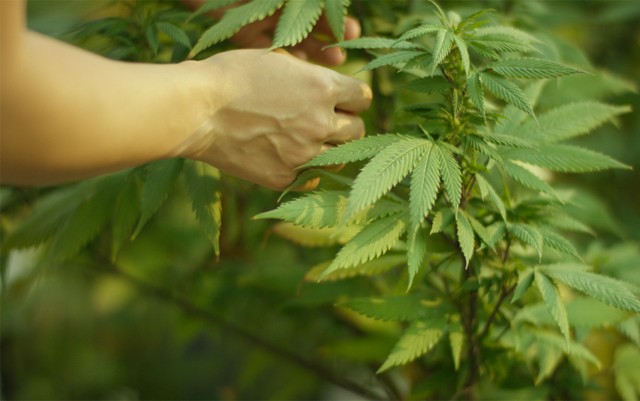The 9th Circuit Court of Appeals is set to finally give us a clear interpretation of the Rohrabacher-Farr Amendment, which is supposed to prevent the Department of Justice from using Congressionally-allocated funds to prevent states from implementing laws that permit use, distribution, and possession. Unfortunately, we all know that the DOJ has not taken this amendment at face value, rather they have interpreted the law to mean they could not prosecute state officials or block the laws, but that they are still able to prosecute dispensaries and growers.
Currently, there are at least three sets of defendants who are claiming that the Rohrabacher-Farr Amendment is clearly grounds for judges to dismiss the charges against them. These cases range from a dispensary raid in California to home growers in compliance with state laws – likely the kinds of cases that the amendment was supposed to keep from happening any longer. However, due to the DOJ’s loose interpretation of the law these cases were prosecuted anyway.
Steve McIntosh is a dispensary owner from Los Angeles who was in compliance with all of California’s state medical marijuana laws – and his attorney is arguing that the Congressional amendment should have forced the Department of Justice to refer the case to the state authorities for prosecution if they saw fit to do so. Instead, officials claimed that McIntosh had connections to a local gang and managed to convict him.
“The feds think they have the power to override voters of the state of Washington and the will of Congress,” said Telfeyan, co-founder of the nonprofit civil rights group Equal Justice under Law. “It’s up to the 9th Circuit to tell them, ‘Enough is enough. You can’t keep prosecuting people who are using medical marijuana for their needs.'”
Another defendant, Samuel Doyle, was convicted after the DOJ claimed that they did not meet the legal requirements for medical marijuana in the state of Washington – even though they met all the requirements of a collective cannabis grow. They were growing for patients who could not afford the medicine – they never sold it but the DOJ said they were.
“The 9th Circuit is the biggest circuit, one that contains lots of marijuana states. If they were to say, ‘The federal government is prohibited from enforcing medical marijuana law,’ that would be huge,” said Sam Kamin, a professor at the University of Denver Sturm College of Law who studies cannabis regulation.
If the 9th Circuit Court of Appeals determines that prosecuting these cases was a violation of the Rohrabacher-Farr Amendment, it will overturn these convictions – as well as many others that have already been settled or are pending. The case of Rolland Gregg and his family have the same appeal, but the courts have put that hearing on hold until a determination on these prior cases has been reached.
This determination will likely make a huge impact on previous federal convictions as well as any future cases. It could put an end to, or at least greatly reduce the number of times, the federal government is able to interfere with individuals and companies in compliance with their state’s medical marijuana laws. Either way, their decision could end up being a game changer and we just have to wait and see.






